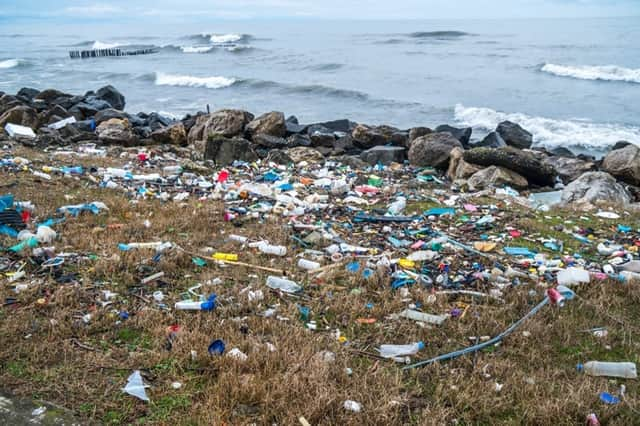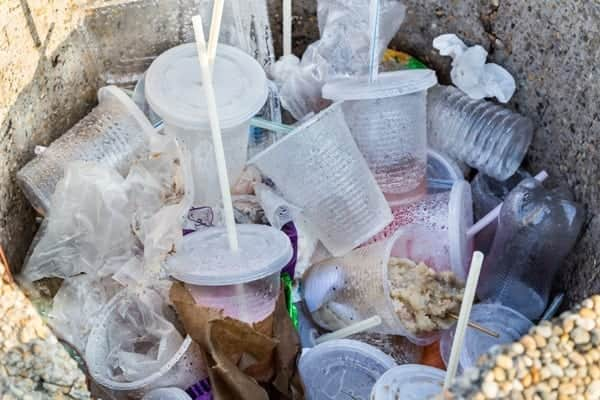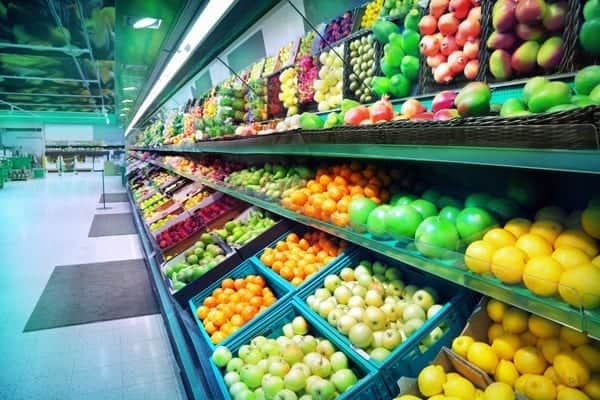10 tips for cutting plastic out of your life


Prime Minister Theresa May is set to outline plans to eradicate all avoidable plastic use in the UK by 2042.
In her speech she is expected to describe plastic as "one of the great environmental scourges of our time".
Advertisement
Hide AdAdvertisement
Hide AdSamantha Hartley, Scotland Programme Administrator for Environmental Association for Universities and Colleges (EAUC), explains that along with supermarkets and large corporations, individuals also must take responsibility for their own waste habits.


"Although supermarkets have a huge responsibility to reduce the amount of unnecessary packaging in their products, we have to be responsible consumers and use our money to show that we don’t want unnecessary plastic packaging when there are readily available plastic-free alternatives."
Here are some simple ways to become a more responsible consumer and cut unnecessary plastic-use from your life.
Carry a reusable bottle
The British public uses over 35 million plastic bottles a year - Carrying your own bottle will help stop this waste stream entirely whilst saving you money


Say no to plastic straws
Advertisement
Hide AdAdvertisement
Hide AdPlastic straws might seem harmless, but they are an unnecessary use of plastic. When ordering at a restaurant, or bar ask the server for a drink without a straw.
If you cant ditch the straw there are re-usable options available in steel and glass.
Plastic straws aren't recyclable (Photo: Shutterstock)


Avoid disposable cutlery
Carry a set of reusable cutlery with you to avoid single-use plastic alternatives.
At work consider having a set of cutlery in your drawer for your lunch break.
Carry a reusable coffee cup


Advertisement
Hide AdAdvertisement
Hide AdContrary to popular belief our single-use coffee cups are not recyclable due to the plastic lining, therefore every cup used will sit in landfill or be incinerated (creating damaging gasses).
By purchasing a reusable cup, coffee drinkers can help to stop this stream of non-recyclable waste. Major coffee shop chains such as Pret A Manger will offer a significant discount to people using their own cup.
Avoid excessive food packaging
Taking reusable carrier bags to the supermarket is just the first step in reducing plastic use when shopping.
Hartley suggests targeting loose fresh produce when possible.
Advertisement
Hide AdAdvertisement
Hide Ad"When you go to a supermarket there is always a plastic-free option for certain fruit and vegetables and this is often the cheaper option. This also helps reduce food waste as you purchase the exact amount needed."
Customers should also look to avoid unnecessary bulky packaging.
Purchase loose fruit and vegetables to cut down plastic use (Photo: Shutterstock)
Use canvas bags for carrying vegetables
Consumers should consider taking extra canvas bags to carry their loose fruit and vegetables, rather than using disposable plastic alternatives offered at supermarkets.
Use reusable household items
Advertisement
Hide AdAdvertisement
Hide AdThere are plenty of household items that can be reused rather than thrown away after one use.
Those who take a lunchbox to work should consider taking reusable sandwich bags. Instead of using clingfilm use a Tupperware, or glass container and try swapping your regular toothbrush for a bamboo alternative.
Buy bar soap and shampoo
Cut down unnecessary plastic waste by opting for bars of soap and shampoo rather than plastic contained alternatives.
Bar shampoo can be purchased from many high-street retailers, including Lush.
Advertisement
Hide AdAdvertisement
Hide AdA sea of plastic bottles, cutlery and polystyrene plates has been found floating in the Caribbean.A New Year’s resolution to all of us - cut down on plastic.Via @bbc5live. #plasticfree #plastic #ThursdayThoughts pic.twitter.com/2sarVxHTOn
— James Melville (@JamesMelville) January 11, 2018
Use matches instead of plastic disposable lighters
One simple tip is to swap a disposable plastic lighter for matches.
Recycle more efficiently
Finally, educate yourself on your council's recycling policies and methods. Hartley explains that good intentions often go to waste.
“Consumers should visit their council’s website and study their recycling set-up – every council and area in the UK is different.
Advertisement
Hide AdAdvertisement
Hide Ad“There are usually very simple guides on what packaging needs to be in what box.
“If a recycling load is even slightly contaminated it won’t be able to be processed and this means it is often incinerated or put into landfill.”